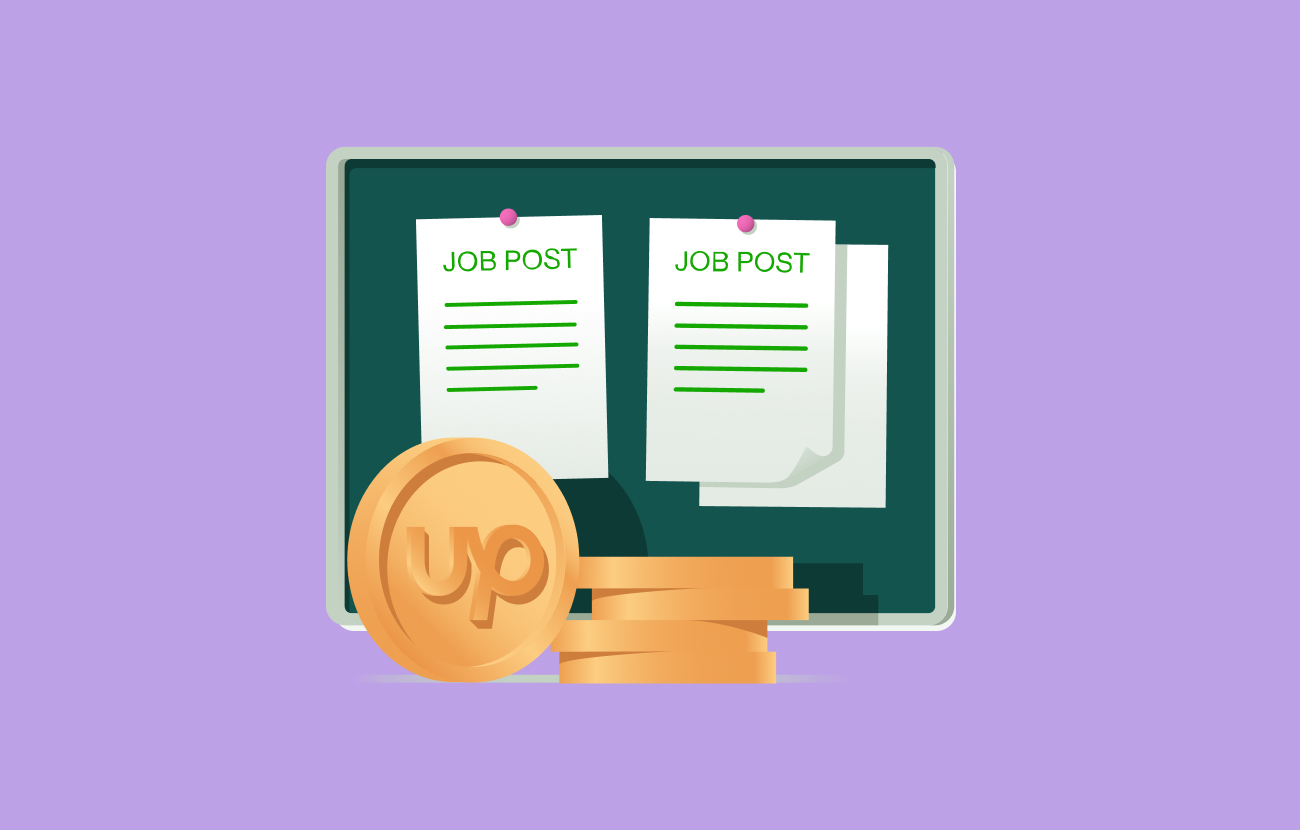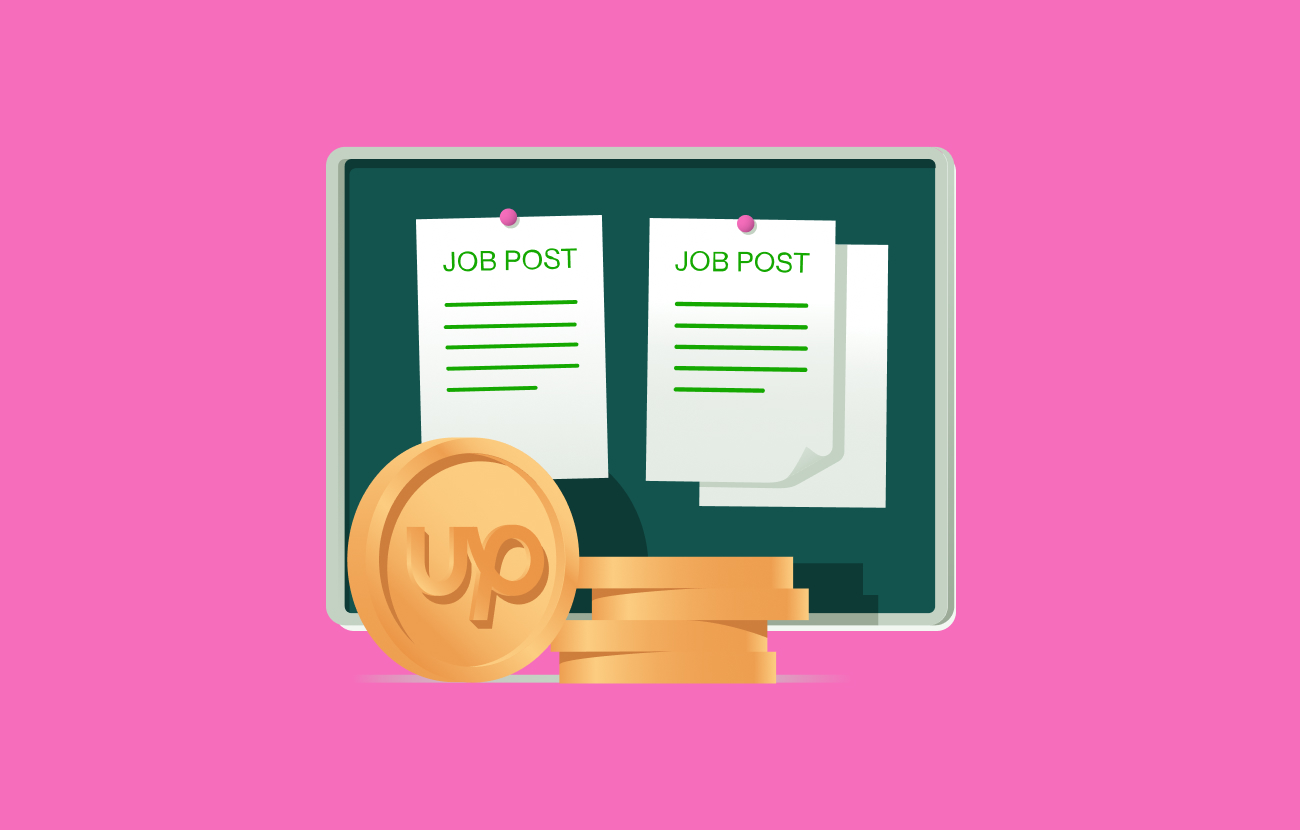Top 10 AI Tools for Finance Professionals
Compare top AI finance tools by functionality. See how businesses use AI for automation, insights, and forecasting—plus freelance support.

Finance professionals often need to handle large volumes of data, and the right tools can help streamline their work, automate repetitive tasks, and increase their productivity. Many financial tools have the capacity to analyze large datasets, which can provide insights that help drive decision-making processes.
In particular, artificial intelligence (AI) has had a significant impact on the financial industry, providing ways to automate tasks, improve customer service, and analyze data more effectively. In a survey of IT executives in banking, 85% had a clear plan for adopting AI in some form.
In this article, we’ll look at some ways AI can help when offering financial services. You’ll also learn about nine of the top AI financial applications to consider when adopting AI for your finance team.
What are AI finance tools?
AI finance tools are software applications that leverage artificial intelligence to tackle financial tasks. AI companies train programs using machine learning algorithms to help the AI model learn patterns that inform and accelerate its later decisions.
Once trained, AI tools can provide real-time insights for data analysis, performance analysis, forecasting, and other tasks. The type of AI used will depend on the task. For example, natural language processing (NLP) is frequently used in customer-facing applications like chatbots.
But while AI can automate many tasks and provide useful insights, humans are still necessary for interpreting the financial analysis, making strategic decisions, ensuring the ethical use of the technology, and managing and maintaining the AI systems.
How AI can assist in financial services and financial planning
AI capabilities can help professionals in the finance industry, from accountants to chief financial officers (CFOs), in a number of ways:
- Expense and income tracking. AI-powered tools can automate the process of recording and categorizing expenses and income. By recognizing patterns, AI can generate visualizations or Excel spreadsheets, offering financial reports and insights from the data to help with budgeting.
- Customer service. User-friendly AI-powered chatbots and other generative AI tools can answer customer queries in real time, provide limited financial advice, and assist with account information. They can handle simple tasks and pass on complex issues to human representatives.
- Fraud detection. AI can analyze large volumes of transactions in real time to identify unusual patterns that may indicate fraudulent activity.
- Robo-advisers. Robo-advisers use algorithms to provide automated investment advice and portfolio management services. This can be a cost-effective alternative to traditional financial advisers.
- Risk management. AI can be used in predictive analytics and scenario modeling to assess and manage financial risk.
- Credit scoring and underwriting. AI can analyze large amounts of data quickly to assess a potential borrower’s creditworthiness, speeding up time-consuming credit decisions and underwriting processes.
- Compliance monitoring. Professionals can use AI to monitor transactions to ensure regulatory compliance and alert relevant parties to potential violations, reducing the risk of penalties and reputational damage.
- Blockchain and cryptocurrency. AI can be used in conjunction with blockchain technology for a variety of purposes, including smart contract management, decentralized finance (DeFi), and detecting fraudulent transactions in crypto.
Remember that while AI can greatly enhance efficiency and capabilities in these areas, it doesn’t replace the need for human oversight, particularly in areas like compliance, risk management, and strategic decision-making, where ethical and regulatory considerations are important.
Also, while these are common uses of AI in financial services, the technology is developing rapidly, so the specifics can vary and new applications are continually emerging.
Benefits of using AI for financial operations
Using AI in financial services holds many advantages. Let’s look at what you can expect:
- Improved efficiency. AI can automate many tasks, such as data analysis and report generation, which can significantly improve the efficiency of workflows and processes in financial services.
- Enhanced accuracy. AI can reduce human errors associated with manual data entry, improving accuracy. However, AI isn’t foolproof and can also make errors, particularly if the data it’s trained on is inaccurate, limited, or biased.
- Data-driven decision-making. AI can analyze large datasets and provide insights in real time, allowing for more informed, data-driven decision-making.
- Personalized customer experience. AI technologies like chatbots can offer personalized customer interactions based on customer data. Additionally, AI can provide personalized financial advice based on an individual’s financial habits and goals.
- Better portfolio management. Robo-advisors can manage investment portfolios based on algorithmically determined strategies. They can provide an affordable and accessible way for more individuals to invest and manage their finances.
- Innovative financial products and services. With AI, financial institutions can develop and offer more innovative products and services. For example, predictive models can enable personalized financial products, and AI-driven data analysis can lead to more targeted and effective marketing.
- Enhanced risk management. AI can predict potential financial risks by identifying patterns in historical data. This can improve decision-making in lending, investments, and other areas where risk assessment is critical.
While AI can offer these advantages, it’s not a panacea. Human oversight and judgment remain crucial, particularly in interpreting AI-generated insights and managing ethical considerations.
Top AI finance tools to consider
Now that you know the benefits of using AI for finance, let’s look at some of the top AI applications.
1. AlphaSense
AlphaSense is a financial research platform that helps professionals find, analyze, and act on information more quickly and efficiently. The platform uses AI to power its search engine, which allows users to find relevant information from a vast range of sources, including company filings, analyst reports, news articles, and expert call transcripts.
Best for: Financial professionals seeking market trends and intelligence
Pros:
- Comprehensive search of over 10,000 data sources
- Real-time monitoring on chosen topics
- Collaboration with team members
Cons:
- Extensive features can overwhelm new users
- May provide less relevant information than needed
Pricing: Free trial available; contact a team member for pricing
2. Greip
Greip is a fraud detection tool that can help businesses analyze financial transactions to look for potential problems. The platform offers several tools—such as IP lookups, VPN detection, phone and email validation, and country lookup—to validate that a customer is real and isn’t a fraud risk.
Best for: Businesses needing a comprehensive solution for spotting fraud
Pros:
- Free plan
- Identity verification features
- Access restrictions to prevent unauthorized access
Cons:
- May not work with all financial institutions due to the application protection focus
- Only works with an API key
Pricing: Free for 15,000 requests per month; paid plans start at $14.99 per month for up to 170,000 requests (billed monthly)
3. ChainGPT
ChainGPT is an advanced AI model that assists individuals and businesses working on blockchain and cryptocurrency projects. The platform offers a number of features, including blockchain analytics, AI trading, and smart contract analysis. ChainGPT can also help with generating research reports, creating marketing materials, and answering customer questions.
Best for: Cryptocurrency and blockchain developers needing help managing cryptocurrency projects
Pros:
- Offers several features covering different aspects of cryptocurrency project management
- Deep, multi-step research on complex topics
- AI model helps with analysis and predictions
- Can generate NFT and smart contracts automatically
Cons:
- Learning curve for people new to the cryptocurrency industry
- Complex website layout
- Chatbot is sometimes slow to answer
Pricing: Free plan with limited daily uses across tools like the Web3 AI Chatbot, Smart Contract Generator, and AI Trading Assistant. After reaching these limits, users can pay per use—typically between 0.5 and 2 CGPT credits (valued at $0.01 each), depending on the feature. A freemium option is available for Diamond Tier members who stake CGPT tokens, providing 20,000 credits monthly for premium tool access.
4. Trullion
Trullion is an AI-powered accounting platform that automates financial workflows for CFOs, controllers, and finance teams. It’s especially strong in lease accounting, revenue recognition, and audit preparation, converting PDFs and Excel data into structured formats.
Best for: Automating lease accounting and financial reporting
Pros:
- Converts contracts and PDFs into accounting entries
- Automates ASC 842, IFRS 16, and other compliance workflows
- Integrates with ERP platforms like NetSuite and QuickBooks
Cons:
- Best suited for mid-size to large enterprises
- Steeper learning curve for smaller finance teams
Pricing: Contact Trullion for a demo and customized quote
5. ZeroTax
ZeroTax is a tax assistance program designed to answer tax-related questions quickly and accurately. The platform uses AI to generate answers for users and employs a team of tax experts who review the accuracy of the AI. ZeroTax also offers a call-in program for people who prefer verbal to written communication.
Best for: Professionals and businesses looking for tax assistance
Pros:
- Chatbot that provides quick answers to tax questions
- On-call chatbot available for people who want to communicate verbally
- Expert reviews (for a fee) to ensure answers are accurate in chats
Cons:
- Only suitable for tax questions
- Costs can add up if you have several questions for an expert
- May not get quick answers for more complicated tax questions
Pricing: Free for AI-generated advice; $50 for each question checked by tax experts
6. Finalle
Finalle is a financial knowledge base that offers real-time market data to investors. The platform includes investors charts, live signals, news, and sentiment analysis. Finalle gets this information by looking at public data sources—including social media, analyst reviews, market data, and company information—to generate insights for customers.
Best for: Investors who want real-time market insights
Pros:
- Real-time data to make financial decisions
- Chatbot to converse with to learn about the market
- Informative charts to display financial data
Cons:
- Limit of two signals on free account
- Limited API calls and chat messages on basic account
- Little API documentation
Pricing: Contact Finalle for a demo and customized quote
7. Glean
Glean is an intelligent accounts payable (AP) program that automates data extraction, coding, bill approvals, and payments for businesses. The software automates many routine financial tasks, such as data entry, GL coding, and reporting. Glean also provides insights that help businesses find spending trends and find areas to save money.
Best for: Businesses that manage accounts payable
Pros:
- Process automation to save time
- Better insights into spending
- Vendor management system
Cons:
- No natural language search
- Limited customization options
Pricing: Paid plans start at $295 per month, billed annually
8. Truewind
Truewind is an AI finance tool designed for startups, providing a robust back office that offers bookkeeping, financial models, and faster monthly closes. The tool also automates many functions, such as transaction tagging and transaction downloads.
Best for: Startups looking to handle books and get accurate finances to help make growth decisions
Pros:
- Helps businesses close the month more quickly
- Personalized support from financial experts
- Use natural language to provide context to transactions
Cons:
- Designed for startups
- Concierge service may not scale indefinitely
- Tailored service may prove cost-prohibitive for startups without funding
Pricing: Contact Truewind for pricing information
9. Xero
Xero is a popular cloud-based accounting platform used by small and medium businesses to manage bookkeeping, invoicing, and cash flow. Its AI and machine learning capabilities help automate bank reconciliation, categorize expenses, and provide real-time insights into financial health.
Best for: Small businesses seeking AI-enhanced accounting features
Pros:
- Automates everyday tasks like bank feeds and transaction coding
- Provides financial dashboards and cash flow forecasting
- Offers hundreds of integrations with other apps and platforms
Cons:
- May require third-party tools or expert help for advanced reporting
- Some AI features are limited compared to enterprise platforms
Pricing: Starts at $2 per month; additional tiers based on company size and features
10. Karbon
Karbon is a collaborative practice management platform built for accounting and finance teams. It offers AI-powered features for email management, workflow automation, and client task tracking—helping firms scale operations and deliver better client service.
Best for: Accounting firms needing streamlined workflow and communication
Pros:
- AI assistance for email triage and task creation
- Workflow automation to improve team productivity
- Integrated timelines for all client communications
Cons:
- Best suited for teams of 5+
- May be overkill for solo practitioners
Pricing: Plans start at $59 per user per month; custom pricing available for larger teams
How freelancers help implement AI finance tools
Whether you're exploring automation, building real-time dashboards, or customizing reporting workflows, freelancers can help you unlock the full value of AI finance tools. Businesses frequently bring in independent professionals to:
- Integrate tools into existing systems. Freelance developers and finance tech specialists can connect AI tools with ERPs, CRMs, or spreadsheets for seamless workflows.
- Build custom reports and dashboards. Data analysts and FP&A consultants can create tailored insights that align with your KPIs and decision-making needs.
- Train models and clean data. AI engineers and data scientists can help clean large datasets, fine-tune algorithms, and improve forecasting accuracy.
- Advise on tool selection and compliance. Financial consultants and AI strategists can recommend the right mix of tools based on your business goals and regulatory requirements.
Many businesses get started with AI finance tools by hiring freelance financial analysts, automation specialists, or AI developers. On Upwork, you can find freelancers with experience integrating tools like Glean or building forecasting models tailored to your workflows.
Use cases of companies using AI finance tools
AI has practical applications for both large enterprises and small businesses. For example:
- JPMorgan Chase developed a chatbot called Quest IndexGPT based on ChatGPT, trained on financial information. JPMorgan’s goal is for the chatbot to act as a financial adviser and offer investment advice to users.
- Kensho is a data analytics and machine intelligence company that provides AI tools to financial institutions. Kensho’s advanced analytics extract actionable insights from complex financial data, enabling traders and analysts to ask complex financial questions in plain language, with the AI offering immediate answers based on its analysis of vast amounts of data.
- Commonwealth Credit Union used the Zest.ai platform to help streamline its underwriting process to deliver faster and safer loans.
Embrace AI with the help of Upwork
AI is upending workflows in countless industries, and the finance sector is no different. New AI technologies allow professionals and organizations to make the most of their data through analysis, and to automate many tasks that people may struggle with. These tools act as an aid to their human counterparts, allowing people to make better informed decisions.
If you’re a business owner or manager who wants to start gaining the advantages of AI systems in your organization, you can find AI experts who use Upwork, the world’s human and AI-powered work marketplace, to connect with clients.
If you’re an AI professional looking for your next client, find your next project by browsing AI jobs on Upwork.
Upwork is not affiliated with and does not sponsor or endorse any of the tools or services discussed in this article. These tools and services are provided only as potential options, and each reader and company should take the time needed to adequately analyze and determine the tools or services that would best fit their specific needs and situation.
Prices are current at the time of writing and may change over time based on each service’s offerings.






.png)
.png)
.png)
.png)
.png)



.svg)
.svg)


























